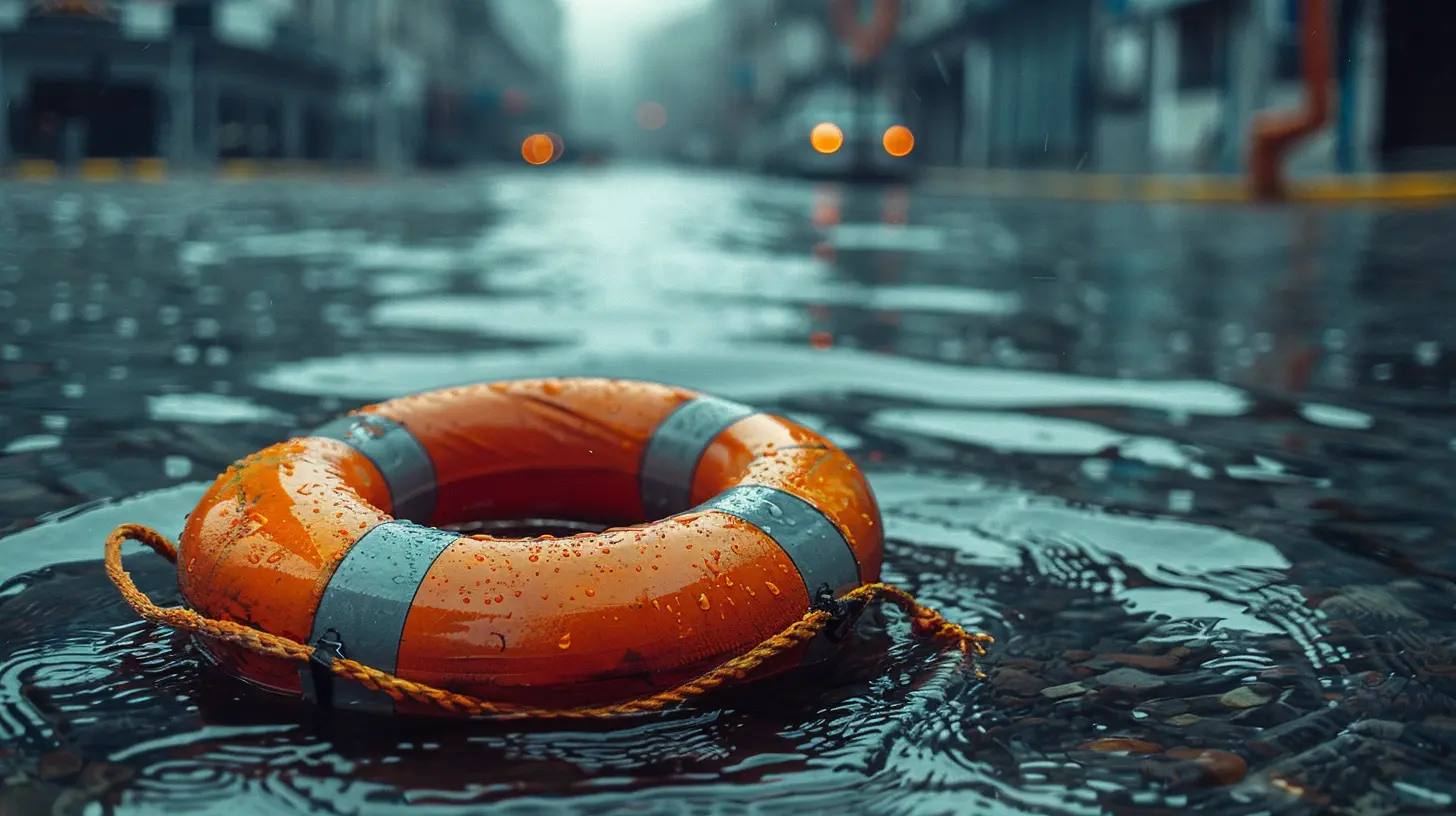The True Cost of Not Having an Emergency Fund
22 May 2025
Life has a way of throwing curveballs when you least expect them. A sudden job loss, an unexpected medical bill, or a car breakdown can send your finances into a tailspin. But what happens when you don't have an emergency fund to cushion the blow?
The truth is, failing to set money aside for life's surprises can have serious financial and emotional consequences. In this article, we'll break down the real cost of not having an emergency fund—and why making this a priority is one of the smartest financial moves you can make.
Why an Emergency Fund Matters
Think of an emergency fund as your financial safety net. It’s there to catch you when life takes an unexpected turn. Without it, you’re left scrambling for solutions—often resorting to high-interest loans, credit cards, or even borrowing from friends and family.But here's the thing: relying on these options can create a domino effect of financial stress and debt, making it even harder to recover.
The Hidden Costs of Not Having an Emergency Fund
Many people assume they can "figure it out" when an emergency strikes. But that approach comes with consequences—some of which can linger for years. Let’s break down the true costs of living without a financial safety net.1. Debt Spiral: The Never-Ending Cycle
When an emergency strikes, and you don’t have savings, the easiest solution often seems to be swiping your credit card or taking out a loan. But here’s the catch—high-interest debt can quickly snowball, leaving you trapped in a cycle of minimum payments and growing balances.For example, if you put a $2,000 emergency expense on a credit card with a 20% interest rate and only make minimum payments, it could take years to pay off—costing you significantly more than the original amount.
2. Financial Stress and Mental Health
Money problems are one of the leading causes of stress, anxiety, and even depression. When you're constantly worrying about how to pay for unexpected expenses, it takes a toll on your mental and physical well-being.Think about it—how well can you sleep knowing you're one emergency away from financial ruin? The peace of mind that comes with having a safety net is priceless.
3. Selling Assets at the Worst Time
Without an emergency fund, people often resort to selling valuables just to stay afloat. Whether it’s your car, jewelry, or even investments, selling assets in a rush means you’re likely to take a loss.Imagine having to sell your stocks during a market downturn just to cover an emergency bill. Not only do you lose money, but you also miss out on future gains.
4. Jeopardizing Future Financial Goals
Emergencies don’t just cause short-term pain; they can derail years of financial progress. Without an emergency fund, you may have to dip into your retirement savings, pause investments, or delay major life plans like buying a home or starting a business.Every time you withdraw from savings or take on debt for emergencies, you’re taking a step backward from your long-term financial goals.
5. Limited Choices in Difficult Situations
Having an emergency fund gives you options. Without it, you might be forced to accept unfavorable situations—like staying in a toxic job because you can’t afford to leave or delaying necessary medical treatment due to financial constraints.Financial freedom isn’t just about being wealthy; it’s about having the ability to make choices that align with your best interests. 
How Much Should You Save in an Emergency Fund?
A common rule of thumb is to save three to six months’ worth of living expenses. This amount provides a solid cushion for most unexpected situations. However, the exact amount depends on factors like:- Your job stability – If you’re self-employed or have an unpredictable income, aim for a larger buffer.
- Your expenses – Consider your essential costs, including rent, groceries, insurance, and minimum debt payments.
- Your personal circumstances – If you have dependents or a single-income household, a bigger emergency fund is crucial.
Even if saving several months' worth of expenses feels overwhelming, start small. Saving just $500 to $1,000 can already make a huge difference in handling unexpected costs without resorting to debt.
How to Build an Emergency Fund (Even on a Tight Budget)
Starting an emergency fund might seem tough, especially if money is tight. But with consistency and smart strategies, anyone can build a financial safety net. Here’s how:1. Set a Realistic Goal
Begin with a small, achievable target—such as saving $500 or one month’s worth of expenses. Breaking your goal into smaller steps makes it feel more manageable.2. Automate Your Savings
One of the easiest ways to build your emergency fund is by automating transfers from your checking account to a dedicated savings account. Treat it like any other bill that must be paid each month.3. Cut Unnecessary Expenses
Take a close look at your spending habits. Are there subscriptions you rarely use? Can you cut back on dining out? Every dollar saved can go toward your emergency fund.4. Use Unexpected Money Wisely
Received a tax refund, bonus, or gift? Instead of spending it impulsively, stash a portion into your emergency fund. Windfalls can give your savings a major boost.5. Find Ways to Increase Your Income
If you're struggling to save from your regular paycheck, consider side gigs, freelancing, or selling unused items to generate extra cash. Even a few extra dollars each month can add up over time.Where to Keep Your Emergency Fund
Your emergency savings should be easily accessible but not so easy that you’re tempted to dip into it for non-urgent expenses. The best options include:- High-yield savings accounts – Earn some interest while keeping your money safe.
- Money market accounts – Another secure option with slightly higher interest rates.
- Separate savings account – Keeping it away from your regular checking account reduces the temptation to spend it unnecessarily.
Avoid investing your emergency fund in stocks or real estate, as these assets can fluctuate in value, making them unreliable for urgent situations.
The Bottom Line: Prioritize Your Financial Security
The cost of not having an emergency fund goes beyond money—it affects your peace of mind, security, and future opportunities. Life’s emergencies are inevitable, but financial ruin doesn’t have to be.By taking small, consistent steps toward building your emergency fund, you empower yourself with financial stability and the ability to navigate life’s surprises with confidence. Start today, even if it’s just a few dollars at a time—because your future self will thank you.
all images in this post were generated using AI tools
Category:
Emergency FundAuthor:

Audrey Bellamy
Discussion
rate this article
3 comments
Skyler Reilly
Not having an emergency fund exposes you to financial stress, debt, and missed opportunities for growth.
May 27, 2025 at 10:22 AM

Audrey Bellamy
Absolutely! An emergency fund is essential for financial security and peace of mind, safeguarding against unforeseen expenses and enabling opportunities for growth.
Owyn McAlister
Security blooms in savings; fear withers away.
May 25, 2025 at 3:35 AM

Audrey Bellamy
Thank you for your insightful comment! Indeed, having an emergency fund provides peace of mind and financial security, alleviating fear during unexpected situations.
Dylan Bishop
This article highlights a crucial aspect of financial planning. It's a reminder of the importance of an emergency fund and how it can provide security during unexpected situations. Grateful for the insights shared here!
May 22, 2025 at 2:22 AM

Audrey Bellamy
Thank you for your thoughtful comment! I'm glad you found the insights on emergency funds valuable. They are indeed essential for financial security.



